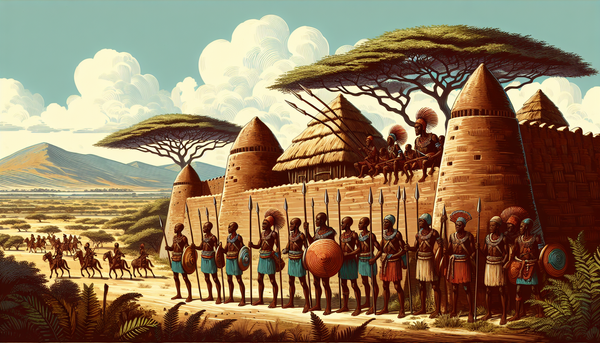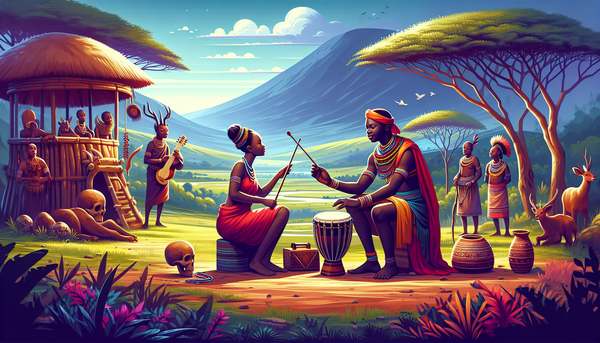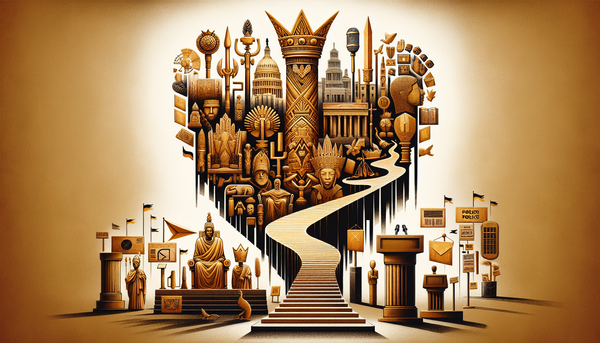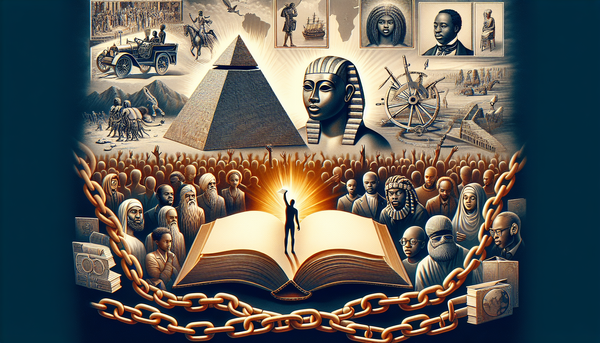The Role of Traditional Music in Political Movements across Africa
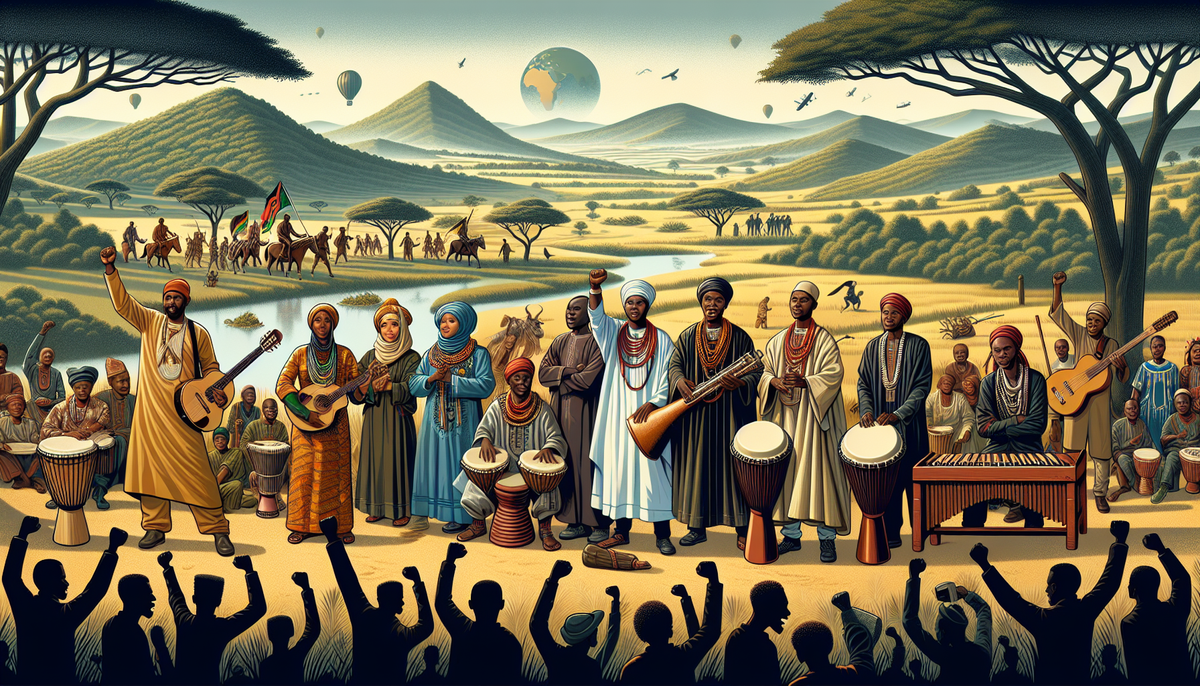
Historical Roots of Musical Influence in African Politics
Traditional music has long played a pivotal role in shaping the political landscape of Africa. From the earliest days of communal life, music served as a vital means of storytelling and a vehicle for social cohesion. Songs were composed to celebrate leaders, commemorate events, and transmit cultural values, thereby establishing a nexus between music and politics. The oral tradition that characterizes much of Africa's heritage ensured that songs became powerful tools for mobilization and resistance against oppressive regimes.
During the colonial era, traditional music evolved as a form of protest against foreign domination. Artists utilized their voices and instruments to articulate the aspirations of their people, often encoding messages of resistance within rhythmic patterns and lyrical content. This not only helped to preserve cultural identity but also galvanized communities to unite against shared oppressors.
In contemporary Africa, these historical roots persist, as traditional music continues to inspire political movements and social change. Many artists draw from their historical heritage to rally support, often merging traditional sounds with modern genres to create a compelling narrative that resonates with younger generations. Ultimately, the interplay between music and politics remains a vibrant and essential aspect of the African spirit, driving the quest for justice and liberation.
Modern Mobilization and Music: Case Studies from Various Nations
In contemporary Africa, music continues to be a powerful force for mobilization in political movements. Countries such as South Africa, Nigeria, and Senegal exemplify how artists harness musical expression to inspire change and advocate for democratic ideals.
In South Africa, during the apartheid era, anti-apartheid anthems like "Nkosi Sikelel' iAfrika" united individuals in resistance against racial oppression. Musicians such as Hugh Masekela and Miriam Makeba used their platforms to draw global attention to the struggle, becoming symbols of resilience. Their melodies not only provided hope but also forged a common identity among diverse groups.
Nigeria’s music scene has similarly become a battleground for political expression. Afrobeats artists like Fela Kuti, known for his fierce criticism of corruption and dictatorship, used their art to mobilize the masses. His songs often sparked conversations around social justice and political accountability, inspiring movements like the #EndSARS campaign against police brutality.
In Senegal, artists like Youssou N’Dour have played a significant role in political dialogue, using music to promote democracy and civil rights. These case studies illustrate that music is more than mere entertainment in Africa; it is a rallying cry that fosters unity and drives political engagement across generations.
Anthems of Resistance: Iconic Songs and Their Messages
Anthems of resistance have emerged from various African nations, encapsulating the struggles, aspirations, and triumphs of oppressed peoples. These songs serve as powerful tools for political commentary and artistic expression, resonating deeply with listeners and galvanizing movements.
One of the most iconic anthems is "Redemption Song" by Bob Marley, widely embraced across Africa as a call for freedom and self-determination. The lyrics evoke a sense of hope while challenging individuals to "emancipate yourselves from mental slavery," inspiring liberation movements throughout the continent.
In Zimbabwe, "Pamberi NeMhozha" became a rallying cry during the fight against colonial rule, celebrating national pride and unity. Similarly, "This Land is Your Land," although originally an American folk song, found resonance in pan-African contexts and was adapted into various languages to symbolize collective ownership and resistance to oppression.
In recent years, songs like "Waka Waka" by Shakira, popularized during the 2010 FIFA World Cup, have also taken on political significance, representing resilience in the face of adversity. These anthems remind us of the transformative power of music, as they deliver poignant messages that transcend borders and capture the essence of the ongoing struggles for justice and equality across Africa.
Cultural Impact: How Music Shapes National Identity
Music plays a crucial role in the formation and expression of national identity across Africa, serving as both a cultural anchor and a means of collective memory. Each nation’s unique sounds, rhythms, and lyrical content reflect historical experiences, social dynamics, and values, allowing citizens to connect with their roots and promote unity.
Traditional music genres, such as the mbira of Zimbabwe or the drumming of West African communities, are imbued with cultural narratives that speak to the struggles and triumphs of their people. These art forms breathe life into shared histories and foster a sense of belonging, reinforcing social cohesion among diverse groups.
Moreover, contemporary artists often blend traditional elements with modern styles, creating hybrid genres that resonate with younger generations while keeping cultural heritage alive. This fusion not only appeals to a broader audience but also promotes national pride, as seen in the rise of Afrobeats and hip-hop in countries like Nigeria and Ghana.
In the age of globalization, music becomes a tool for asserting identity amid external influences. By embracing their musical heritage, nations can cultivate a strong sense of collective identity that reflects both their past and aspirations for the future, making music a vital force in shaping the narrative of African identity.
The Interplay Between Music Genres and Political Ideologies
The relationship between music genres and political ideologies is particularly pronounced in Africa, where diverse musical styles often serve as vehicles for political expression and advocacy. Different genres encapsulate various socio-political messages, allowing artists to engage with and influence their audiences in profound ways.
For instance, reggae, which gained global prominence through artists like Bob Marley, has historically been associated with anti-colonial movements and social justice. Its messages of resistance resonate with the pan-African ideals that have fueled political activism across the continent. Similarly, Afrobeat, pioneered by Fela Kuti, combines traditional African rhythms with jazz and funk to critique corruption and authoritarianism, reflecting Kuti’s own resistance against Nigeria's military regimes.
In contrast, genres like hip-hop have emerged as powerful forms of expression for younger generations, often addressing contemporary issues such as inequality, unemployment, and governmental accountability. Artists like Aka in South Africa and Khaligraph Jones in Kenya use their platforms to challenge socio-political norms and advocate for change.
Ultimately, the interplay between music genres and political ideologies illustrates how artists navigate complex landscapes, using their art to articulate dissent, promote dialogue, and spark movements for social and political transformation across Africa.
Grassroots Movements and Local Musical Traditions
Grassroots movements in Africa have increasingly turned to local musical traditions to galvanize community support and express collective aspirations. These musical practices, deeply rooted in cultural heritage, provide a powerful medium for social change, connecting communities to their history while addressing contemporary challenges.
Local music often features traditional instruments and indigenous rhythms, creating an authentic soundscape that resonates with the masses. For instance, the use of the djembe in West Africa or the mbira in Southern Africa not only reinforces cultural identity but also encourages communal solidarity. Songs within these traditions frequently serve as narratives of resistance, celebrating local heroes and honoring shared struggles against oppression.
During significant movements like the anti-colonial struggles or more recent campaigns for social justice, these musical forms have become essential tools for mobilization. In countries like Senegal and South Africa, artists collaborating with grassroots organizations have created songs that amplify the voices of marginalized communities, addressing issues such as land rights, gender equality, and access to education.
Through performances at local gatherings or digital platforms, these traditional musical expressions foster a sense of unity and empowerment, reminding communities of their strength and resilience. Ultimately, grassroots movements harness local musical traditions to advocate for change, driving social and political engagement from the ground up.
The International Perspective on African Music and Politics
The international perspective on African music and politics has evolved significantly, as scholars, activists, and audiences worldwide increasingly recognize the profound impact of African musical traditions on global political discourse. African music, with its rich tapestry of genres, serves as both a reflection of national struggles and a unifying force that resonates beyond borders.
Prominent artists such as Angelique Kidjo, Youssou N’Dour, and Burna Boy have gained international acclaim not only for their musical talent but also for their commitment to social issues. Their songs often address themes like human rights, environmental justice, and climate change, bridging local concerns with global challenges. Through their music, they amplify critical voices, fostering international solidarity and awareness.
Moreover, global events, such as music festivals and cultural exchanges, have provided platforms for African musicians to engage with international audiences and share their political messages. The rise of social media further enhances this reach, allowing artists to communicate their political ideologies and mobilize support on a global scale.
The international perspective thus highlights the interconnectedness of African music and political activism, illustrating how these artists influence not only local narratives but also contribute to global dialogues about justice, equality, and human rights, reshaping perceptions of Africa in the process.
